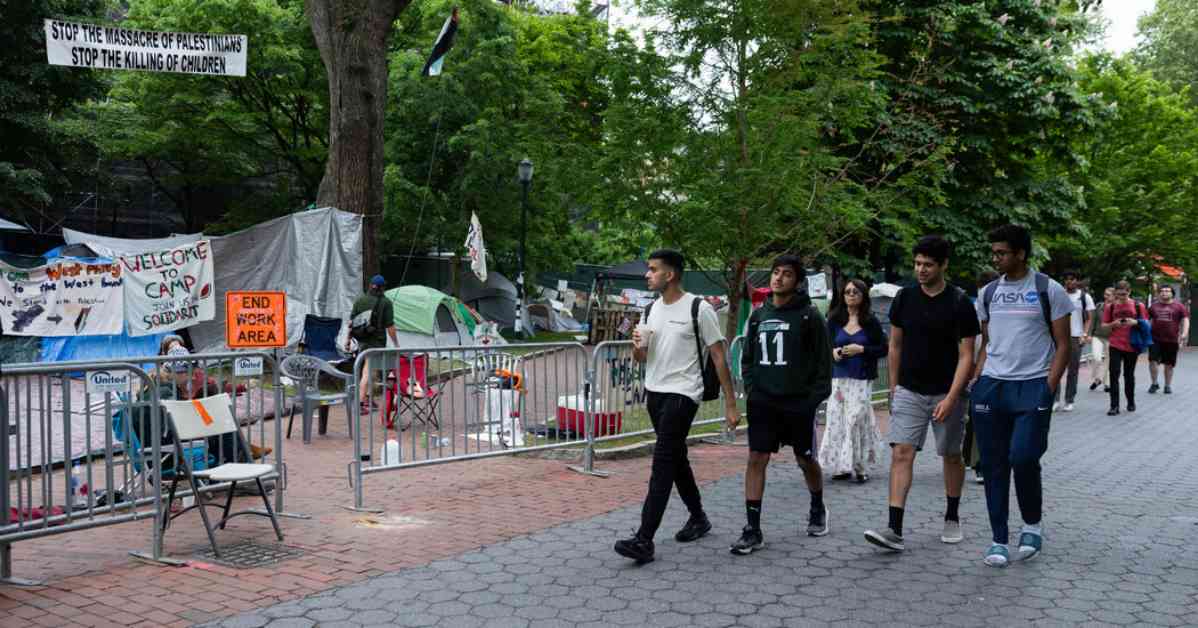Penn Campus Implements Ban on Protest Encampments
The University of Pennsylvania recently made headlines for implementing a ban on protest encampments on its campus, marking the first time such a restriction has been put in place. This decision comes in the wake of a nationwide surge in student activism surrounding Israel’s actions in Gaza, leading to heightened tensions between universities and their student bodies.
Background on the Ban
The ban on protest encampments at Penn comes after the police intervened to clear a pro-Palestinian encampment on campus, resulting in the arrest of 33 individuals. This incident, along with similar protests at universities across the country, prompted the university to take action to address the concerns raised by both students and administration.
New Rules and Regulations
The temporary rules issued by the University of Pennsylvania not only explicitly prohibit encampments but also place restrictions on other forms of demonstrations on campus. According to the new guidelines, any unauthorized overnight activities, whether indoors or outdoors, will be considered trespassing and will be addressed accordingly.
In addition to the ban on encampments, the rules also prohibit protests that disrupt speakers on campus or prevent members of the community from hearing or seeing the speaker. Furthermore, students are no longer allowed to project slogans onto buildings or write on them with chalk or markers.
Response and Justification
The administration at Penn has defended the new rules as necessary measures to ensure the safety of the university community and protect the institution’s core missions of teaching, research, service, and patient care. The rules are intended to strike a balance between allowing free expression and maintaining a conducive environment for academic activities.
According to the university, the rules will be reviewed by a faculty-led task force in the 2024-25 academic year to assess their effectiveness and address any concerns that may arise. Students who violate the rules will face disciplinary action, although the specifics of these consequences have not been elaborated on.
The decision to implement these rules has sparked mixed reactions among students, with some expressing support for the measures as a means to maintain order on campus, while others view them as an infringement on their right to protest and express their views freely.
As the debate over the ban on protest encampments at Penn continues, it remains to be seen how these new rules will impact the dynamics of student activism on campus and whether they will achieve the intended goal of fostering a harmonious and productive academic environment.




















